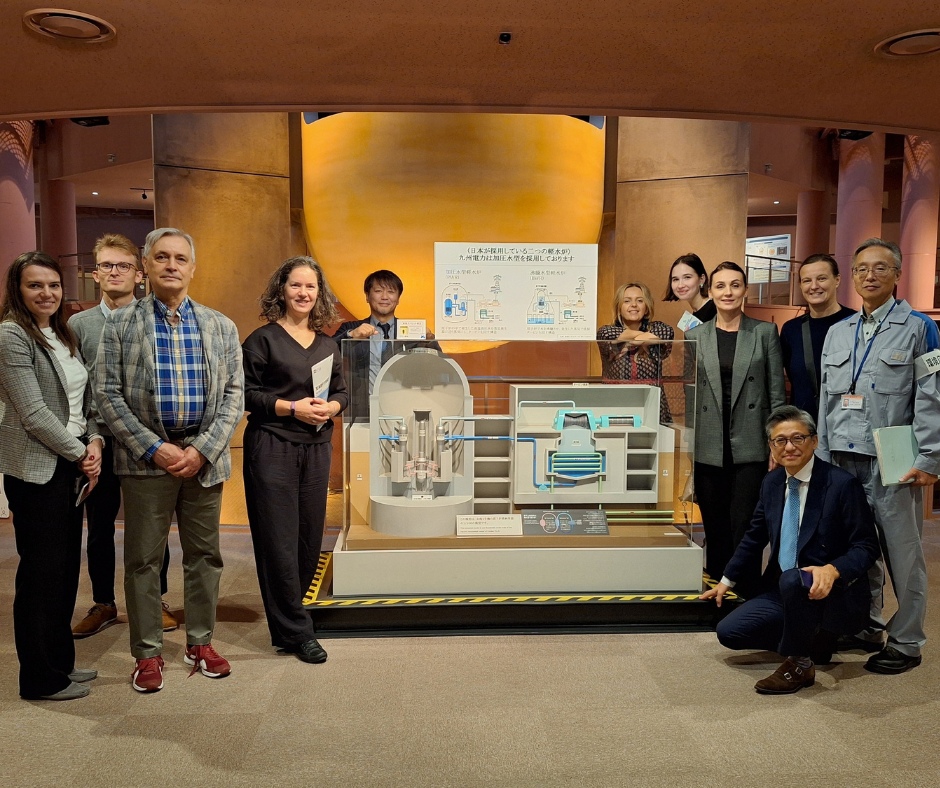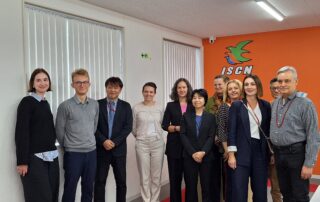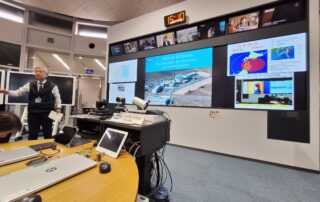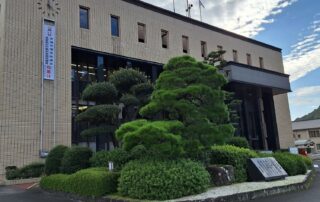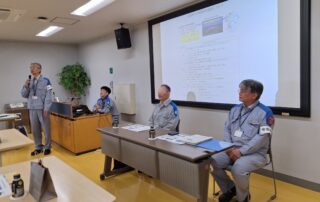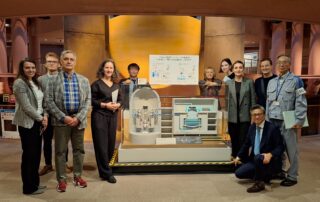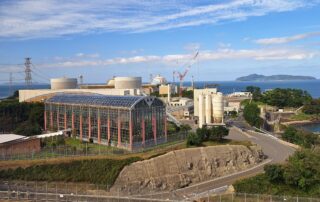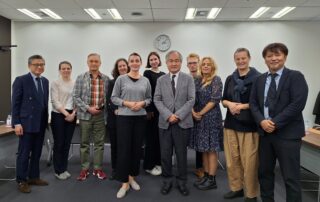At the invitation of the Department of Nuclear Energy of the Ministry of Industry, in cooperation with the Japanese Ministry of Economy, Trade and Industry (METI), from 20-26 October 2024, Dagmara Struminska-Parulska, PhD, DSc, Professor UG, Head of the Laboratory of Toxicology and Radiological Protection of the Faculty of Chemistry, UG, participated in a study tour to learn about the current state of nuclear power in Japan.
The trip was organised by the Agency of the Ministry of Economy, Trade and Industry of Japan – Japan Atomic Industrial Forum International Cooperation Center (JICC-JAIF). The visit was attended by 8 people, apart from Dagmara Strumińska-Parulska the trip was also attended by representatives of the Ministry of Industry, the Technical University of Łódź, the Centre for Eastern Studies, the Polish Economic Institute, the Polish Institute of International Affairs and the Pomeranian Governor Beata Rutkiewicz.
The itinerary included visits to nuclear power plants, research and development and education centres, and meetings with local government authorities, in the area where the nuclear facilities operate. At the Japan Atomic Energy Agency Integrated Support Center for Nuclear Nonproliferation and Nuclear Security in Ibaraki, a presentation was given on the operation of the institution established to improve nuclear materials management and strengthen the international non-proliferation regime by combining technology and expertise. The agency conducts technical training programmes as well as research towards strengthening the security of nuclear facilities.
The Ibaraki Prefecture Nuclear Power Off-site Center, the Environmental Radiation Monitoring Center and the Nuclear Emergency Assistance and Training Center (NEAT) were also visited in Ibaraki. NEAT was established by the Japan Atomic Energy Agency to provide effective support to the national government, local governments, police, fire services other institutions in response to nuclear and radiological disasters. NEAT includes both an emergency management centre and a radioactive contamination laboratory.
In turn, a meeting with the mayor of Genkai at the Genkai Town Office and a tour of the active Genkai Nuclear Power Plant provided a social and national perspective on the operation of the nuclear power plant and the national nuclear restoration system. Particularly valuable was a full-day meeting with teams working at the Fukushima Nuclear Power Plant and a tour of the Fukushima Daiichi Nuclear Power Plant, destroyed in the 2011 tsunami and earthquake in Japan, as well as a visit to the TEPCO Decommissioning Archive Center. The group had the opportunity to enter the site of the defunct plant, where work is still being carried out to deal with the consequences of the disaster, as well as learning about the decommissioning strategy for the damaged reactors and the remediation of the site and contaminated water used to cool the nuclear reactors at the damaged plant.
At the end of the visit, the delegation met with a journalist from the Japanese newspaper Nihon Keizai Shimbun Newspaper, which covers economic, financial, business topics. Mr Taki, a columnist specialising in nuclear power, presented the political situation and Japan’s plans for nuclear power development.
“Until March 2011, the country’s more than 50 reactors were securing around 25 per cent of the energy in Japan’s power mix,” says Dagmara Struminska-Parulska. “After the Fukushima disaster, the Japanese nuclear regulator ordered them to be stopped until new safety requirements were developed and modifications were made to existing reactors. As a result, none of Japan’s power reactors were operating in 2013. However, life has shown that Japan cannot give up on nuclear power. Further stringent safety regulations have been put in place and more units are gradually coming online. Japan has a wealth of experience in the field of nuclear power, and like many countries around the world, is interested in acquiring more nuclear power, which is a stable source of energy, free of emissions and independent of the weather.“
As a professor at the University of Gdansk explains, the use of the Japanese experience can support the smooth integration of nuclear power into Poland’s energy mix.
“If Japan has been able to rebuild public confidence in nuclear energy, then cooperation with the Japanese side can help not only in preparing comprehensive programmes to meet safety requirements, but also in conducting scientific research and effective public communication,” emphasises.


